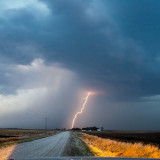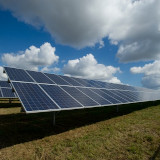Climate Crisis
We need to step up our ambition. If we are serious about wanting to be climate neutral by 2050, we have to start mapping this out from now, from day one. It remains to be seen how green plan will be put into practice, with many important decisions left to member states.

Scars left by the Covid-19 pandemic are deepening the global divide between rich and poor countries and will make it harder to find common cause in the fight against global warming. Looking 10 years ahead, failure to act on climate change will be the biggest global risk, followed by extreme weather, biodiversity loss, natural resource crises and human environmental damage. The economic fallout from the pandemic is adding to already existing pressures – such as widening digital, education and skills gaps – that risk splitting the world into different trajectories.

In some countries, rapid vaccine rollout, successful digital transformations and new growth opportunities could mean a return to pre-pandemic trends in the short term and the possibility of a more resilient outlook over a longer horizon. Yet many other countries will be held back by low rates of vaccination, continued acute stress on health systems, digital divides and stagnant job markets. These divergences will complicate the international collaboration needed to address the worsening impacts of climate change and manage migration flows.

While the economic after-shocks will last for years beyond pandemic, we will eventually get back to normal. But if “normal” means getting back to the business of burning fossil fuels and destroying the biosphere then our future remains bleak. We are ushering in a new climate, one that we are completely unprepared for and will be largely powerless to reverse. It’s possible that even if we stopped all burning of fossil fuels tomorrow, vast amounts of ice will inevitably carve into icebergs and raise global sea levels by many metres.

The ecosystems across the world could collapse. What’s worse, large ecosystems such as rainforests and coral reefs could collapse at a proportionately faster rate than smaller ecosystems. The shifts in large ecosystems could happen over “human” timescales of years and decades. We may be witnessing the death throes of one of the Earth’s great biological wonders. At this time, the most useful lesson we can take from the Covid-19 crisis is that we have much greater capacity to act then has been assumed. Previously, climate policies could only operate within a very narrow window, which was essentially doing nothing that would threaten continual economic growth.

The governments have rediscovered their capacity for action. Economies can be put on hold to slow down the climate change. At the same time people are discovering the importance of community. As it has been snatched away, we have come to realise how fundamental human contact and social interactions are to our well-being and happiness.We should not expect the governments to do everything – we have to start with ourselves. Those who assume that by some sort of miracle, we would all of a sudden end up with climate neutrality without doing anything are really, really misguided. Let's start a new way of living that is both focused on what makes humans happy and what can be sustained by the Earth’s system.
Quote
We are all living together on a single planet,
which is threatened by our own actions.
And if we don't have some kind of global cooperation, nationalism is just not on the right level to tackle the problems, whether it's climate change or whether it's technological disruption.
--Yuval Noah Harari